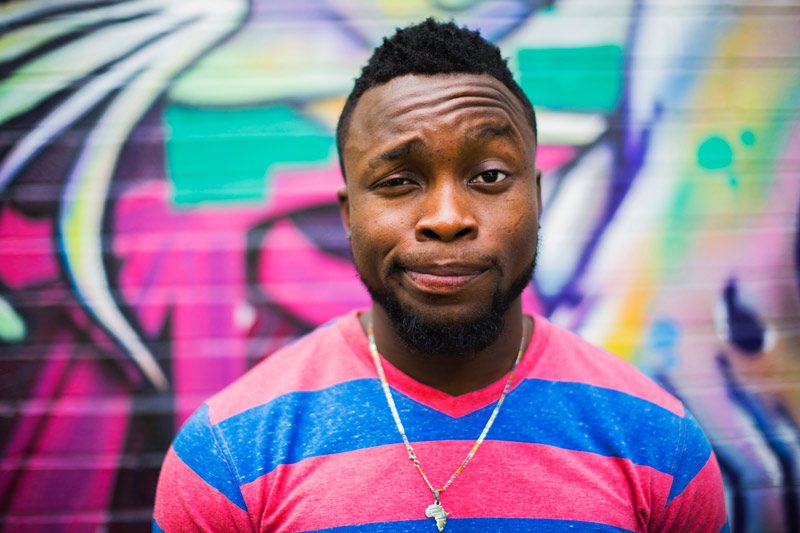Microaggressions are subtle but distinctly intolerant comments, actions, behaviors, or environments directed against marginalized people or groups of people.
They are a vague and ambiguous form of discrimination. Those who commit microaggressions are often influenced by internalized biases they themselves may not even recognize. This makes it very difficult for a person on the receiving end to confront it or speak up about why it was discriminatory.
People with mental illnesses or disorders are among the many marginalized groups who experience microaggressions from those around them.
Even though they may not appear prejudiced or hurtful on the surface, microaggressions can cause those who they target significant levels of distress and discomfort. For those already struggling to maintain a healthy mindset, microaggressions can build up over time and contribute to a destructive internalized dialogue. This can set them back years and undo the valuable progress made through therapy and support.
Understanding Microaggressions
African-American psychiatrist Dr. Chester M Pierce was the first to coin the term “microaggression.” The word is defined as a subtle but harmful comment, action, environment, or instance aimed at invalidating or discriminating against a marginalized group or individual—whether intentionally or unintentionally.
Race and ethnicity are the most familiar marginalized groups that people associate with microaggressions. But these hurtful biases can be directed towards any person or group of people that are targets of discrimination.
People’s sexual orientation, gender, class, religion, age, disability, or mental health disorder can make them vulnerable to both macro and microaggressions. These aggressions don’t just take place in public or the workplace; they often occur at home, too.
Examples of Mental Health Microaggressions
Educating yourself about identifying and avoiding mental health microaggressions will allow those affected by mental illness to feel more accepted, supported, and safe.
Let’s look at some examples of the most common forms of micro-aggressive behavior and other unhelpful comments that people living with mental illness may experience.
1. Misuse of Terminology
Unfortunately, our society has a reputation for throwing around terms for serious mental health disorders without really understanding what they mean.
- “I color-code all of my study notes. I’m so OCD!”
- “This weather is bipolar.”
- “I missed my favorite show… now I’m depressed!”
Using serious mental illnesses as descriptions of your current mood or situation not only contributes to inaccurate stigma; it can also make those around you who are genuinely affected feel misunderstood and invalidated.
2. Assumptions and Stereotyping
Another way that people with mental health disorders can be the victims of microaggression is through false assumptions and negative stereotyping. This can look like:
- Avoiding them because of the belief that they are untrustworthy or dangerous
- Labeling individuals as “crazy” if they take prescription medication or go to therapy
- Excluding them from social activities because they’ll be a “downer”
These stigmatizing beliefs about what you can expect from someone with a mental illness are painfully narrow-minded. Mental health disorders vary widely in how they affect people, and lumping them all into one big negative category is divisive and uncaring.
3. Doubting of Existence or Severity
A common form of microaggression towards people who struggle with mental health disorders is the doubting of the validity or extent of a person’s illness. Unlike someone on crutches, in a large wheelchair, or missing a limb, mental illness is invisible. There’s no physical indicator, so it’s “easier” to doubt that the person struggles with a condition.
Often, parents and friends engage in this type of unintentional aggression to convince both themselves and the person in question that there’s no real issue. Comments that express this outlook include:
- “I’m sure you’re just overreacting. It’s not that bad!”
- “Depression is a heavy word. Everyone gets sad sometimes.”
- “You seem fine to me–just give it some time.”
While it may seem helpful to want to alleviate the seriousness of a mental illness, downplaying or straight up ignoring its existence does nobody any good. Those expressing concerns about their mental state are making an important personal step and need to be taken seriously.
4. Avoidance of Acknowledgment
Pretending that a mental disorder does not exist will not make it go away. It often only ends up making the person experiencing it feel undermined and overlooked. Avoiding the acknowledgment of a mental illness can manifest in these ways:
- A guardian or parent refusing to send a child to therapy
- Not being willing to engage in conversation about mental illness
- Treating mental illness like a taboo or unmentionable subject
This type of microaggression often stems from fear about the severity of a mental illness or a lack of understanding about what it means. Sadly, avoiding discussion or treatment for a mental health issue will only frustrate the sufferer and perpetuate the problem.
5. Blaming and Shaming
Some people subscribe to the belief that those with a mental illness have somehow “failed” at being healthy. They see them as primarily responsible for the issues they face.
This toxic mindset can cause people with mental illness to become self-loathing or ashamed of their condition. Often, this worsens their mental state. Blaming and shaming may include:
- Pointing out poor life choices as “reasons” for why they are in this situation
- Disowning or refusing to associate with someone with a mental illness
- Accusing someone of playing the victim or fishing for sympathy
Shame is a wildly destructive emotion that will take root quickly if not properly monitored. People with mental health challenges are already likely to experience feelings of shame or self-doubt, and this type of treatment can only heighten those negative feelings.
Educate, Affirm, and Accept
It’s sometimes difficult for us to accept that at some point, we have all likely delivered some form of microaggression towards people living with mental illnesses. However, educating ourselves about why it happens and what to do when we see it unfold is the best thing we can do moving forward.
Educating yourself is the first step. Followed keenly by loving affirmation and open-minded acceptance of someone’s condition.
Nobody is perfect, but everyone can do their part in undoing the toxic, falsely based stigmas around mental illness that they have internalized over the years.
About the Author: Donna Jefferson is a writer, editor, and health and wellness enthusiast covering topics on parenting and senior health. Donna leads a fairly active lifestyle and enjoys sweating it out at the gym or going on hikes with friends during her free time.
Photo by Ayo Ogunseinde on Unsplash
The opinions and views expressed in any guest blog post do not necessarily reflect those of www.rtor.org or its sponsor, Laurel House, Inc. The author and www.rtor.org have no affiliations with any products or services mentioned in the article or linked to therein. Guest Authors may have affiliations to products mentioned or linked to in their author bios.
Recommended for You
- Why Eating Disorders in Men Are Often Missed - July 3, 2025
- No More Silence: The Opioid Epidemic’s Alarming Impact on Women - June 30, 2025
- The Hidden Impact of Repressed Memories on Mental Health and How to Heal - June 26, 2025






Does micro-aggression apply to those struggling with substance abuse disorder? Its so easy believe that their situation is directly related to their poor life choices.
Additionally we are coached to “cut them off” and stop taking calls and that “helping them does not help them” and allow them to “suffer the natural consequences” of their decisions/actions and/or “hit rock bottom” more quickly which might encourage them to get into treatment.
This has always been conflicting to me as a loved one of someone with SUD.